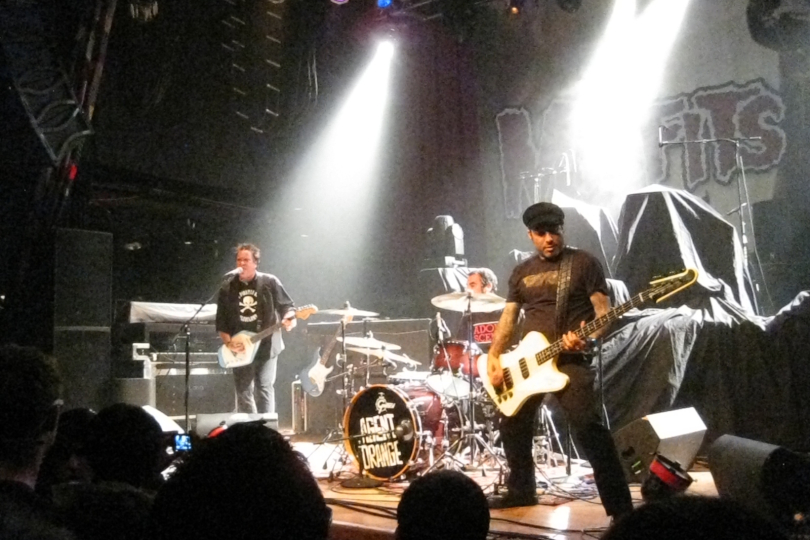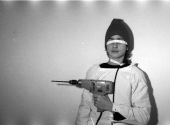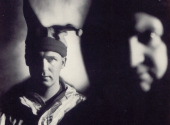
Milestones in Music History #43: Agent Orange, Surfing the Crest of Punk
It would seem an almost impossible feat to match the musical insight and sonic beauty of Tōru Takemitsu, whom we discussed in our previous episode. But music, as we know, can also be innovative as an expression of fun, joie de vivre, and of course rebellion. When you throw a surfboard into the mix, the formula is ready. And we are fortunate that the musical alchemist who prepared it, Agent Orange, gave it as a gift to the world.
In a previous episode, we looked at how surfing had become fashionable in the United States, and how from there, a real musical genre, surf music, was born. We looked at the emergence of an exclusively instrumental version of the genre, of which The Challengers was probably the most shining example.
However, another branch of surf music also proliferated, including vocals and backing vocals. This category was largely headed by the Beach Boys – although Brian Wilson himself categorically rejected the surf music appellation, emphasising that theirs was rather the "Beach Boys sound" – but it did not last long.
In other words, surf music evolved into other genres, for instance, hot rod rock, which could be defined as the typical Californian sound of the mid-1960s, with imagery of hot rods, girls and surfing. And another genre that developed a little later in the 70s, which still assumed a surf reference but in a different context, one of social revolt, opposition and transgression. And so, surf punk was born.
Specifically, this subgenre was born in 1979, in sunny Placentia, a town in the northern part of Orange County, a quiet place, very close to chaotic LA but far enough away to enjoy the calm in the summer heat and to reach the nearby beaches of Bolsa Chica or Huntington Beach. This is the scenario where Mike Palm, Steve Soto (who attended El Dorado High School in Placentia) and Scott Miller met and decided to form a band.
Just a year after forming, the band self-released their debut 7-inch EP, which featured the popular song "Bloodstains". The demo version of the song had been used by Rodney Bingenheimer, a Pasadena radio DJ for KROQ-FM who then also placed it on a compilation album that was released in 1980, Rodney on the ROQ, and is considered seminal in the development of punk and modern punk rock.
The following year, however, Soto left the ranks, leaving to form the hardcore punk band The Adolescents. Thus, the brilliant bassist James Levesque took his place, and the trio thus defined began to work on new songs. So, in November 1981 the debut album Living In Darkness was released. It contained a new version of "Bloodstains", and it was produced with Brian Elliott, who went down in history for having composed the very famous Madonna hit "Papa Don't Preach".
The album marked Agent Orange's official entry into the Olympus of punk rock. The record combined characteristics of punk and surf rock, but also incorporated elements from skate punk, a genre that had come into vogue in the early 80s, a mix of hardcore punk and skate culture (which despite being more scratchy and noisy in the beginning, in the 90s it became more melodic and gave birth to pop punk).
Apart from the mythical, aggressive and bombastic "Bloodstains" – a piece that at first listen already creates a disarming addiction – all the other songs on the album are also remarkable, such as "No Such Thing", "Too Young to Die" and "The Last Goodbye". The attachment to the roots of surf music was highlighted instead in the beautiful interpretation of the classic surf instrumental "Miserlou", arranged by Mike Palm.
Over the next two years, the band released two 12-inch EPs, respectively Bitchin' Summer in 1982 and the following year, once signed with Enigma Records, the EP When You Least Expect It... The contract with the new record company allowed them to start work on new material and in 1986 they released their second album, This Is the Voice.
It was surely a very different work from their debut album, although it carried on with the same nastiness, the same bad intentions of their first work; and always with a surfer soul inside – of course. Standouts were the tracks "I Kill Spies", "Fire In the Rain", "Voices (In the Night)" and even the cocky "This Is Not the End".
The early 1990s saw a dramatic line-up change, as Sam Bolle arrived to replace Levesque and on drums Charles Quintana – formerly of the LA Latin punk rock band The Plugz – replaced Miller. These were important changes that also influenced their musical composition. And the group, thus formed, in 1996 released what was their last studio album, Virtually Indestructible.
The title already said a lot, even if the songs turned out to be a little less aggressive than the previous two albums. Although, for example, "Make Up Your Mind And Do What You Want To Do" and "Unsafe At Any Speed" have definitely left their mark.
To date, the band, after many line-up changes, is still alive, even if Mike Palm is the only historical member still active. Albeit with a small musical production. Agent Orange contributed greatly to the emergence of the surf punk genre and was the one who created skate rock. Palm's vocal style was a great inspiration, Levesque's surf guitar and backing vocals were emulated by bands like Bad Religion, Green Day, The Offspring and Nirvana.
There is no doubt that Agent Orange has been seminal and has taken the reins of a genre, that of punk, to transform it, torture it and bring it hand in hand with the culture of our days. A revolution made not with guns, but with surfboards, bonfires, under the roar of the waves.
Their contribution to surf, punk and punk rock music was essential. A similar vigour and a desire for rebellion, but meaner and less summery, could be found not far from California on the West coast, where a genre was being born, the so-called grunge, thanks to the outrageous Wipers, protagonists of our next Milestones episode.
How can seemingly distant worlds like surfing and punk be united? Does surf culture exist today? And how has it evolved? What other genres mix music and leisure activities? And how can music today become a vehicle for stimulation and entertainment?
Leave your opinioin in the comments below!
If you have found an error or typo in the article, please let us know by e-mail info@insounder.org.





